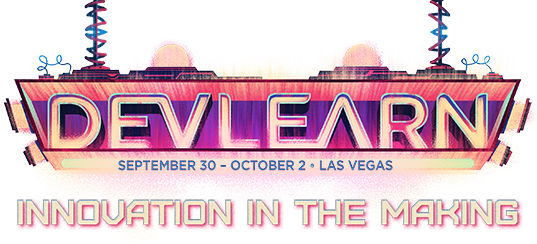311 Becoming a Learning Experience Designer
3:00 PM - 4:00 PM Wednesday, September 30
Instructional Design
111
Learning and development professionals are under pressure to produce real results. Many times the traditional methods of instructional design and content development are not getting the job done. We have to think differently on how to design, develop, and leverage technology to create learning experiences that actually impact performance and get the results that matter.
In this session you will learn the importance of building experiences in the form of online scenarios, simulations, and real-world on-the-job tasks. You’ll leave understanding better how to apply research-based guidelines to design, structure, and sequence experiences into optimized learning paths. You’ll see to how to leverage technology, especially mobile and the Experience API (formerly Tin Can) to deliver, capture, and track learning experiences. Finally, in this session you’ll see examples of how learning-experience designers are transforming how people learn professional, technical, sales, and leadership skills.
In this session, you will learn:
- How to capture the experiences of experts
- How to design effective learning experiences
- How to sequence learning experiences into an optimized learning path
- How to use mobile and the Experience API to capture and track real-world experience
Audience:
Novice to advanced designers, developers, project managers, and managers.
Technology
discussed in this session:
The Experience API (xAPI) and mobile technology.

Marty Rosenheck
Chief Learning Strategist
Cognitive Advisors
Marty Rosenheck, PhD, CEO and chief learning strategist at Cognitive Advisors, provides talent development, learning experience design, and learning technology ecosystem consulting. He is a thought leader and sought-after consultant, speaker, and writer on the application of cognitive science research to learning and performance. Marty has over 30 years of experience. He has created award-winning learning experiences, designed learning ecosystems, developed cognitive apprenticeship programs, built performance support systems, conducted needs assessments, specified learning paths, constructed virtual learning environments, and developed formal, informal, and social learning strategies for dozens of nonprofit and for-profit organizations.













































